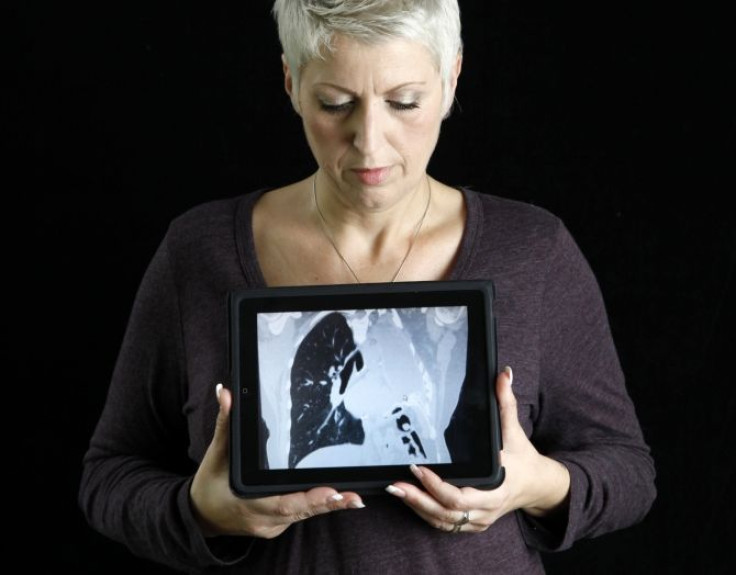Discovery Could Help in Treatment of Deadly Lung Cancer

Scientists have discovered two molecules in the cell that may open new doors in the treatment of a highly aggressive form of lung cancer called small cell lung cancer (SCLC).
Small cell lung cancer accounts for about 15 percent of all lung cancers. This type of cancer spreads faster than non-small cell lung cancer. SCLC is the most aggressive form of cancer and is found mainly in people who smoke. The cancer cells in this type of cancer are small, but grow fast and spread to other parts of the body like brain, liver and bones.
Scientists found that two proteins - PARP1 and EZH2 - are present in higher levels in SCLC cells.
"Because most targeted therapies directly act on proteins, identifying if certain proteins are over-expressed in SCLC could have therapeutic applications," said Dr. Lauren Byers, the study researcher from the University of Texas.
SCLC patients generally undergo chemotherapy treatment. These drugs don't cure the disease, but only relieve some of the symptoms. Additionally, surgery and radiation are used to remove some tumors.
Researchers say that the current discovery would lead to newer therapies in treating small cell lung cancer.
"This lab work suggests that clinical studies using treatments to block the proteins PARP and EZH2, together with chemotherapy, warrant further investigation. Scientists have already developed drugs that block PARP, which have shown some promise in treating breast and ovarian cancers - it will be interesting to see if these benefits extend to SCLC too," Dr. Byers added.
Some 200 proteins known to be the drivers of cancer growth were studied in the present research.
"We discovered that SCLC and NSCLC have dramatically different protein profiles in terms of which proteins are 'turned on' and are driving the behaviour of these cancers," Dr. Byers said.
"In small cell lung cancer, proteins that were present at higher levels included several DNA repair proteins such as PARP1 and a protein involved in cancer stem cell renewal, EZH2," Dr. Byers added.
The work is important although it is still in its primary stages because little work has been done in the field of SCLC in the past two decades, according to professor Siow-Ming Lee from University College London Cancer Institute and Hospitals in Cancer research UK press release.
The study is published in the journal Cancer Discovery.



























